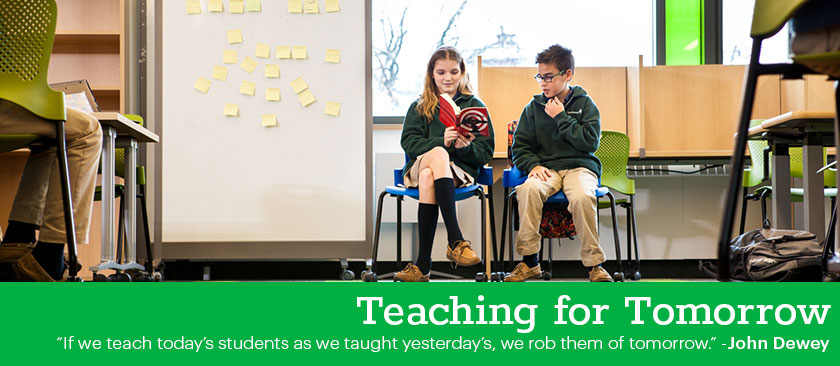Thursday 7 May 2015
The AP Challenge: Close Text Analysis of Hamlet
In the regular Grade 12 English course, the focus of close text analysis is a critical reading of the text and how it functions in the play as a whole. Assessments are chunked to help students differentiate between the importance of the information in the scene and the importance of how it is said. For example, how does word choice reveal character? How does a recurring image recall a larger theme? The goal is to be a critical reader, a skill that students can apply in any discipline and later in life.
Students in the AP course also hone their critical reading skills but have the increased challenge of deciding how to organize their findings in an essay. This essay is written in class over about thirty minutes, emulating the format of the AP exam. While this task may seem grueling, it enables students to make their own decisions about how to prioritize what they notice in terms of both its importance and how their ideas should be grouped within paragraphs. Students in both classes are taught to notice the same things; the difference is the depth to which students explain what they have noticed.
Close text analysis is a great example of how AP courses can increase academic challenge for students. Looking forward to applications to Greenwood's future flexible classrooms, the fact that both skills are taught during the same unit and can be done with the same readings also means that students can choose to challenge themselves with the AP model of the skill even if they are in the regular course. This way, students are given more opportunity for "challenge by choice," as they expand their critical reading skills.
Stephanie Martino
English Teacher
Wednesday 26 February 2014
Personalized Independence
The Grade 12 Writer’s Craft course is an English elective, usually chosen by students who enjoy creative writing. As the course is process driven rather than content driven, students have many opportunities to make choices based on their interests and to develop a work plan that suits their schedules.
As is the norm in this course, students:
- Read expert guidelines for success criteria and complete two reading quizzes.
- Find six real-world samples of the forms of writing. I offered several suggestions of sources plus samples of magazines for these, but students had to secure their own.
- Write an analysis of how one of the samples met the criteria they had identified.
- Write two original pieces of their own and annotate them to show where they were meeting the criteria. Students were encouraged to create one of their pieces for the school newspaper.
Each student was invited to a conference with me and with a weekly due date for tasks, I was able to see how students were progressing through the tasks and to call in any student who needed additional support for another conference. Students were also able to request a conference during class time if they wished. I was always available during class time, and several students chose to work in the room where it was quieter and they could be more focussed. However, some students preferred to work on Writer’s Craft tasks late at night and used our class time to complete work for other classes as needed.
Tuesday 28 January 2014
Professional Practice in Media Studies
Students in Grade 11 media studies participate in both the analysis and creation of many forms of media. Most recently, they have been working to develop their skills in review writing as a method of analysing television shows, documentaries, and feature films. As a number of the students in the course are interested in pursuing careers in related fields, it is important that the assessment process reflects the reality of the industry.
First drafts of written content are rarely published; as such, first drafts of written reviews in this class are not assigned a final grade. Instead, I provide the students with a temporary grade and ample feedback on their work. I then return the reviews to them, and provide them with the opportunity to revise their work up to four times. Students are required to complete at least one revision, but the others – all assessed by me for temporary grades – are optional. Students can track the improvement in their writing in a measurable way between drafts, which gives them ownership over their learning and revision process.
Monday 9 December 2013
Reading & Writing: Grade 7 Students Personalized By Readiness
In September, the students began reading Fighting For Dontae, a novel about a young boy living in an impoverished area of southern California. Throughout the unit there were various reading comprehension quizzes and paragraph writing exercises, as well as letter writing in role. We did ongoing assessments in preparation for unit 2. Based on each student’s demonstrated skill level, we then personalized their reading comprehension abilities and written expression.
Fast forward to unit 2, which began last week. Unit 2 looks at forms of writing. Students have begun learning about narrative and expository pieces. With the information we gathered about each student in unit 1, we are now able to personalize their reading and writing tasks to suit their individual needs and readiness.
The first task was to practice writing a narrative story. Students were all given different scenarios/story starters, from our observations and assessments from unit 1. This allows students who need extra support and structure to receive it, while stretching students who are ready to move forward.
Personalized learning has helped tremendously in the Grade 7 English classroom as students are feeling confident, and working towards their potential.
Teacher

